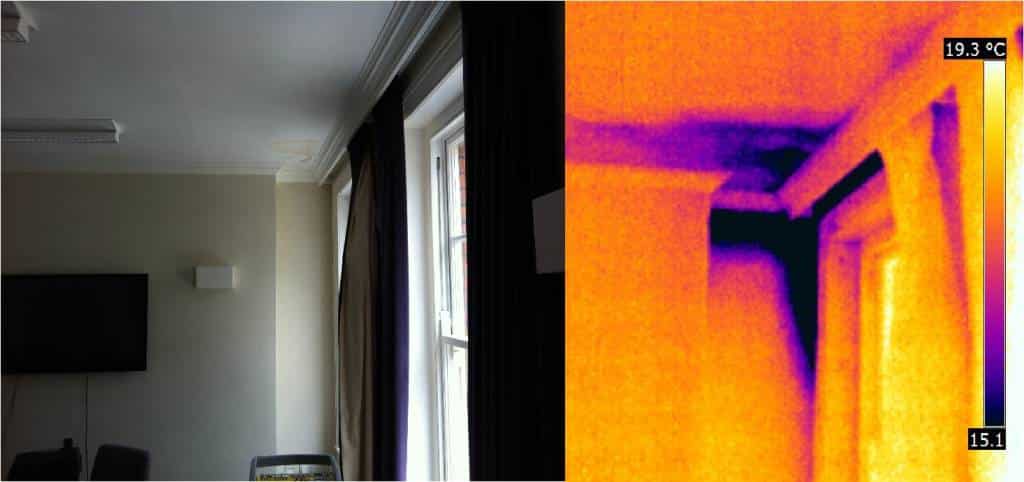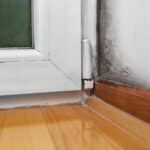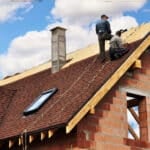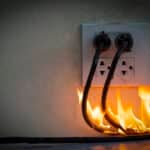When it comes to assessing the condition of a home, thorough inspections are crucial. Traditionally, inspectors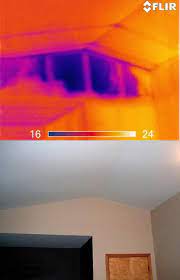 heavily relied on their eyes and expertise to identify potential issues. However, with advancements in technology, thermal imaging cameras have emerged as valuable tools for home inspections. In this blog post, we will explore the fascinating world of thermal imaging cameras and delve into how they revolutionize the way homes are inspected.
heavily relied on their eyes and expertise to identify potential issues. However, with advancements in technology, thermal imaging cameras have emerged as valuable tools for home inspections. In this blog post, we will explore the fascinating world of thermal imaging cameras and delve into how they revolutionize the way homes are inspected.
- Understanding Thermal Imaging Cameras: Thermal imaging cameras, also known as infrared cameras, capture infrared radiation emitted by objects and convert it into a visible image. Unlike traditional cameras that rely on visible light, thermal cameras detect the heat signatures of objects, allowing us to see temperature variations and anomalies that may not be apparent to the naked eye.
- How Thermal Imaging Works: Thermal imaging cameras operate on the principle of infrared radiation. Every object with a temperature above absolute zero (-273.15°C or -459.67°F) emits infrared radiation. The camera’s sensor detects this radiation and generates an image by assigning different colors or shades to represent varying temperatures.
- Applications in Home Inspections:
- Energy Efficiency: Thermal imaging cameras are invaluable in identifying energy leaks and insulation issues. By scanning the walls, floors, and ceilings, inspectors can quickly detect heat loss or gain, poorly insulated areas, and air leaks. This information helps homeowners make informed decisions about energy-efficient upgrades, ultimately reducing utility bills and environmental impact.
- Electrical Inspections: Faulty electrical connections often lead to overheating and potential fire hazards. Thermal cameras can easily pinpoint these anomalies by revealing hotspots in electrical panels, circuit breakers, and wiring systems. Inspectors can identify potential risks before they escalate, promoting safety in residential properties.
- Moisture Detection: Water intrusion and moisture-related problems can lead to structural damage and mold growth. Thermal imaging cameras can detect temperature variations caused by moisture, helping inspectors identify hidden leaks, condensation, or damp areas behind walls, under floors, or in ceilings. Early detection enables timely repairs, preventing further damage and potential health hazards.
- Plumbing Issues: Thermal cameras can aid in identifying plumbing problems such as pipe leaks or blockages. By observing temperature differences, inspectors can trace the path of water flow, locate hidden leaks, and determine potential areas prone to future issues. This technology reduces the need for invasive exploratory work, saving time and cost for homeowners.
- Limitations and Considerations: While thermal imaging cameras are powerful tools, it’s important to acknowledge their limitations. They cannot see through walls or objects, but rather detect surface temperatures. The accuracy and interpretation of thermal images also require expertise and experience. Inspectors must consider environmental factors such as ambient temperature, wind, and sun exposure, as they can affect thermal readings.
Conclusion: Thermal imaging cameras have revolutionized the field of home inspections, enabling inspectors to identify hidden issues that may go unnoticed with conventional methods. With their ability to detect energy inefficiencies, electrical faults, moisture problems, and plumbing issues, these cameras provide valuable insights for homeowners, enhancing safety, comfort, and overall property value. As technology continues to advance, we can expect further improvements in thermal imaging cameras, making them an indispensable asset in the world of home inspections. At Tennessee Inspection Services we use thermal imaging with all of our inspections.

